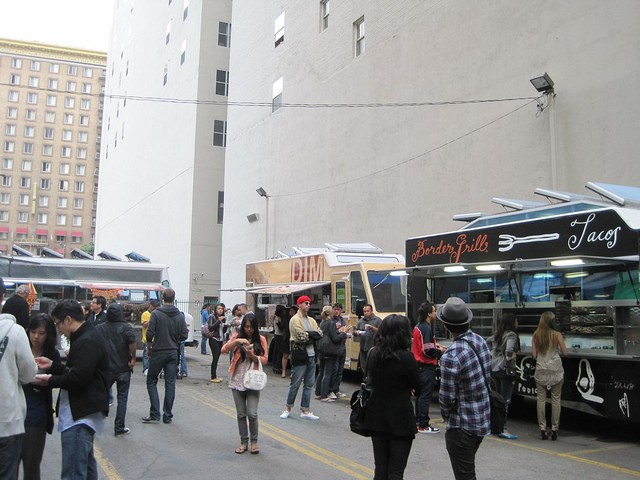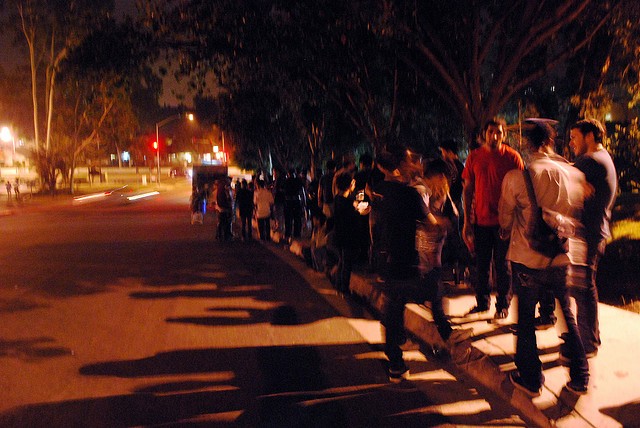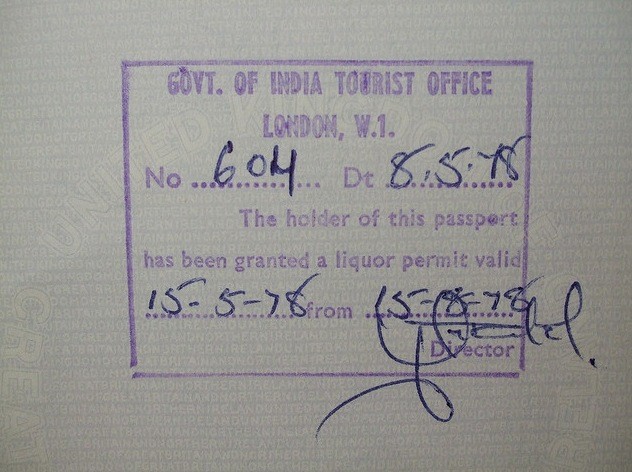
Boomers! in Fountain Valley held a food-truck meetup last Friday night with a dozen food trucks. As Gustavo reported, they snuck in a $5 cover charge.
We received a Facebook invitation today to a food-truck meetup at the Irvine Regency. It trumpets, “30 minutes free parking!” Ten food trucks on a Thursday lunchtime, and a mere half-hour for parking? The Irvine Hyatt Regency's website says day parking is $9.
It's hard to count the number of food-truck events that have been moved, ousted or outright canceled with next to no notice, even on Twitter. A gathering of three trucks last Friday near the Yahoo! offices was booted by the Burbank P.D.; only one of the three trucks in question bothered to Tweet the event.
This kind of amateur event planning is not doing the mobile-food industry any favors. Real PR organizations don't make these mistakes; it's the folks who think they can just throw a few trucks in an empty parking lot and send out some social-media messages who are at fault here. For those folks who are making their first steps into event planning, here are five rules to follow:
]
1. Parking needs to be free

Food-truck gatherings are no longer
festivals, even with the addition of a DJ or even a live band. Food
trucks are lunch–or dinner. Just as people have rebelled against paying
for parking at restaurants in this down economy, no one wants to pay
for parking for what's considered a street lunch. Also, before anyone
gets any ideas from Downtown Inc., no one is going to valet park for a
food truck. If your venue insists on charging for parking, find a different venue.
2. Admission needs to be free–or so minimal that it doesn't impact the cost of a meal

The $5
charge doesn't cut it. By the time a patron shows up and pays for parking and
attendance, the cost of the meal has gone from $5 or $10 to $15 or $25–or
more. It's possible to have an excellent dinner in a sit-down restaurant
with linen napkins and gracious service for $25 each. If you must
charge a cover, it needs to be nominal, it needs to provide value for
the money, and–most important–it must be communicated well and well
in advance.
3. The more trucks show up, the more important it is to limit attendance

Lines three hours long for the Grilled Cheese Truck; a hundred people in
line for ice-cream sandwiches; overflowing portable toilets. Ticketed
events must have reasonable caps on attendance. This is not Disneyland;
now that luxe loncheras have fixed themselves firmly in the region's
gastronomic landscape, people are not willing to stand on multiple long
lines just for a taste of food.
4. Permission and permits need to be arranged in advance

This includes permission from the property owner, permits from the city,
and arrangements with OCHCA or other food-inspection organizations. A
wink and a nod doesn't cut it; just showing up and taking up parking
doesn't, either. When there are last-minute changes to location,
the blame falls on the food trucks, not on the (mostly invisible)
presenters.
5. All public information needs to be complete and accurate
This should be day-one lessons for professional PR folks. Sadly, there
are some folks out there who appear to have taken the $5 communications
course instead of the $10 one, and the result is that information is
incomplete or incorrect. Case in point: Sprint's free food day last November, which
didn't specify at first which corner–Garden Grove/Anaheim or
Fullerton–of Harbor and Chapman was going to be the site. The Orange County
Register reported one, and we reported the other. If your press releases
are wrong, you'll soon find them ignored by bloggers and journalists
alike.

